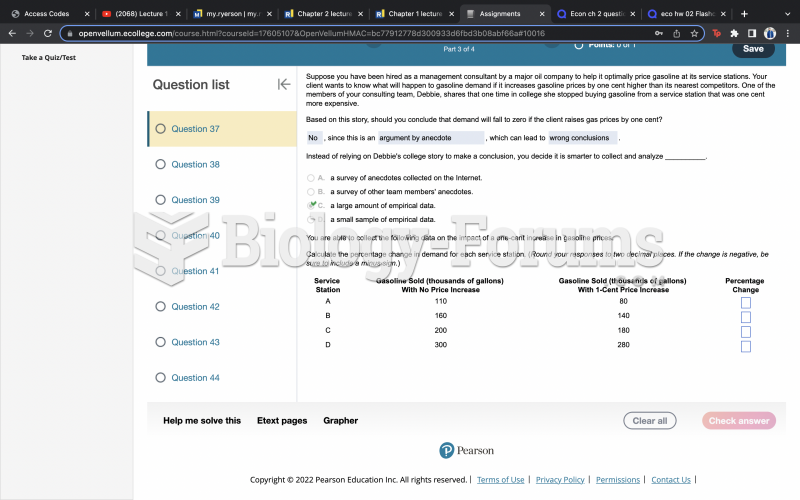|
|
|
Cutaneous mucormycosis is a rare fungal infection that has been fatal in at least 29% of cases, and in as many as 83% of cases, depending on the patient's health prior to infection. It has occurred often after natural disasters such as tornados, and early treatment is essential.
Human stomach acid is strong enough to dissolve small pieces of metal such as razor blades or staples.
Drying your hands with a paper towel will reduce the bacterial count on your hands by 45–60%.
For pediatric patients, intravenous fluids are the most commonly cited products involved in medication errors that are reported to the USP.
There are major differences in the metabolism of morphine and the illegal drug heroin. Morphine mostly produces its CNS effects through m-receptors, and at k- and d-receptors. Heroin has a slight affinity for opiate receptors. Most of its actions are due to metabolism to active metabolites (6-acetylmorphine, morphine, and morphine-6-glucuronide).







